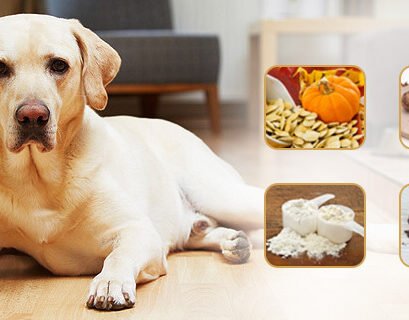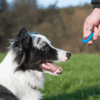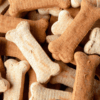Can dogs eat powdered donuts?
As a dog owner, I understand the temptation to share our favorite treats with our furry companions. However, when it comes to powdered donuts, caution is warranted. While dogs can consume certain human foods in moderation, powdered donuts may pose potential dangers to their health. In this article, we will explore the risks associated with feeding powdered donuts to dogs, the harmful ingredients present in these treats, signs of donut poisoning in dogs, what to do if your dog ingests a powdered donut, safe alternatives for dogs to enjoy, tips for keeping your dog away from powdered donuts, the importance of a balanced diet for dogs, and the significance of consulting with a veterinarian regarding your dog’s diet.
Potential Dangers of Powdered Donuts for Dogs
Powdered donuts, although delicious to us, can be harmful to our canine companions. One of the main concerns is the high sugar content found in these treats. Dogs have a different digestive system than humans, and their bodies are not designed to handle excessive amounts of sugar. Consumption of sugary foods like powdered donuts can lead to obesity, dental problems, and even diabetes in dogs. Additionally, the powdered sugar coating on these donuts can cause gastrointestinal distress, including stomachaches, diarrhea, and vomiting in dogs.
Ingredients in Powdered Donuts that are Harmful to Dogs
In addition to the high sugar content, powdered donuts contain ingredients that are toxic to dogs. For example, many commercially produced powdered donuts contain artificial sweeteners such as xylitol, which is extremely toxic to dogs. Xylitol can cause a sudden release of insulin in a dog’s body, leading to a dangerous drop in blood sugar levels. This condition, known as hypoglycemia, can be life-threatening if not promptly treated. Other harmful ingredients present in powdered donuts include refined grains, hydrogenated oils, and preservatives, all of which can have negative effects on a dog’s overall health and well-being.
Signs of Donut Poisoning in Dogs
If your dog has consumed a powdered donut, it is crucial to be aware of the signs of donut poisoning. Some common symptoms include vomiting, diarrhea, excessive thirst, increased urination, lethargy, weakness, tremors, seizures, and even collapse. If you notice any of these symptoms in your dog after they have ingested a powdered donut, it is essential to seek immediate veterinary care. Time is of the essence when it comes to treating donut poisoning, as prompt intervention can prevent further complications and increase the chances of a positive outcome for your furry friend.
What to Do if Your Dog Eats a Powdered Donut
If you discover that your dog has eaten a powdered donut, it is important to act quickly. First, assess the situation. Determine the quantity of donut consumed and whether any other potentially harmful ingredients were present. Then, contact your veterinarian for further guidance. They may instruct you to induce vomiting at home or bring your dog in for an examination. It is crucial not to attempt any treatment without professional advice, as some methods of inducing vomiting can be harmful in certain situations. Remember to remain calm and follow the instructions provided by your veterinarian to ensure the best possible care for your dog.
Safe Alternatives for Dogs to Enjoy
While powdered donuts should be avoided, there are plenty of safe alternatives for dogs to enjoy. Instead of sharing your sugary treats, opt for dog-friendly snacks that are specifically formulated for their dietary needs. Many pet stores offer a wide variety of dog treats that are both delicious and healthy. Look for treats that are low in sugar, free from harmful ingredients, and made with natural, wholesome ingredients. Alternatively, you can prepare homemade dog treats using dog-friendly ingredients such as lean meats, fruits, and vegetables. Your dog will appreciate the gesture, and you can have peace of mind knowing you are providing them with a safe and nutritious treat.
Tips for Keeping Your Dog Away from Powdered Donuts
Prevention is always better than cure, and when it comes to powdered donuts, it is essential to take proactive measures to keep your dog away from them. Firstly, ensure that all powdered donuts are stored in a secure location that your dog cannot access. Be mindful of where you leave your treats, and avoid leaving them unattended on countertops or tables within reach of your curious canine. Additionally, teach your dog basic obedience commands, such as “leave it” or “drop it,” to discourage them from picking up or consuming inappropriate items. Supervise your dog during meal times and dispose of any leftover donuts or crumbs properly. By implementing these precautions, you can minimize the risk of your dog consuming powdered donuts and potentially harming their health.
The Importance of a Balanced Diet for Dogs
Feeding your dog a balanced diet is essential for their overall health and well-being. While it may be tempting to share our favorite treats with them, it is important to remember that dogs have different nutritional needs than humans. A balanced diet for dogs consists of a combination of high-quality commercial dog food, fresh fruits, vegetables, and lean proteins. These components provide the necessary nutrients, vitamins, and minerals that dogs need to thrive. When planning your dog’s diet, consult with your veterinarian to ensure you are meeting their specific dietary requirements based on their age, breed, size, and any underlying health conditions.
Consulting with a Veterinarian About Your Dog’s Diet
When it comes to your dog’s diet, it is always best to seek professional guidance. Every dog is unique and may have individual dietary needs or restrictions. Consulting with a veterinarian allows you to receive expert advice tailored to your dog’s specific requirements. They can provide valuable insights regarding the appropriate portion sizes, the ideal balance of nutrients, and any dietary modifications that may be necessary based on your dog’s health and lifestyle. By working closely with a veterinarian, you can ensure that your dog receives the nutrition they need to maintain optimal health and avoid any potential complications associated with an imbalanced or inappropriate diet.
Conclusion
While powdered donuts may be a beloved treat for humans, they are not suitable for dogs. The high sugar content, harmful ingredients, and potential for donut poisoning make them a risky choice for our furry friends. Instead, opt for safe alternatives specifically formulated for dogs, and prioritize a balanced diet that meets their nutritional needs. By taking proactive measures to keep your dog away from powdered donuts and consulting with a veterinarian about their diet, you can provide them with the best care possible. Remember, your dog’s health and well-being should always be a top priority.
FAQs: Can Dogs Eat Powdered Donuts?
Q: Are powdered donuts safe for dogs to eat?
A: No, powdered donuts are not safe for dogs. They contain high levels of sugar and fat that are unhealthy for dogs, and some ingredients can be toxic.
Q: What should I do if my dog eats a powdered donut?
A: Monitor your dog for any signs of distress, such as vomiting or diarrhea. If you notice any unusual symptoms, contact your veterinarian immediately.
Q: Can a small amount of powdered donut harm my dog?
A: While a small bite might not cause immediate harm, it’s best to avoid giving any amount to prevent the risk of health issues.
Q: Why are powdered donuts bad for dogs?
A: Powdered donuts are high in sugar and fats, which can lead to obesity, dental problems, and diabetes in dogs. They may also contain toxic ingredients like chocolate, nutmeg, or xylitol.
Q: What are some dog-friendly treat alternatives?
A: Opt for treats specifically designed for dogs, which are available in pet stores. These treats are formulated to be both safe and nutritious for your pet.
Q: Can dogs have any human foods?
A: Some human foods are safe for dogs in moderation, such as plain cooked chicken, rice, and certain fruits and vegetables. Always consult with a vet before introducing new foods to your dog’s diet.
Q: How can I keep my dog’s diet healthy?
A: Stick to a balanced diet formulated for dogs, and avoid feeding them processed human foods. Regular exercise and veterinary check-ups are also important for maintaining your dog’s health.
Remember, when in doubt about feeding your dog something new, it’s always best to consult with your veterinarian.
Related Posts
Are Dogs Allowed In CVS?
March 22, 2024• Dog
Are Dogs Allowed in Duane Reade?
March 22, 2024• Dog
Natural Dewormers for Dogs: Safe and Effective
March 15, 2024• Dog, Dog Health
How Do I Comfort My Dog After Neutering?
March 6, 2024• Dog, Dog Health
Dog Rubs Face on Carpet: A Guide to Why
March 5, 2024• Dog














